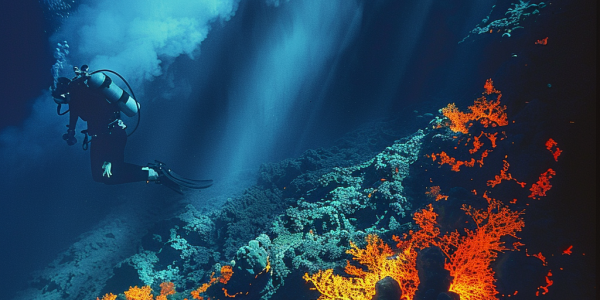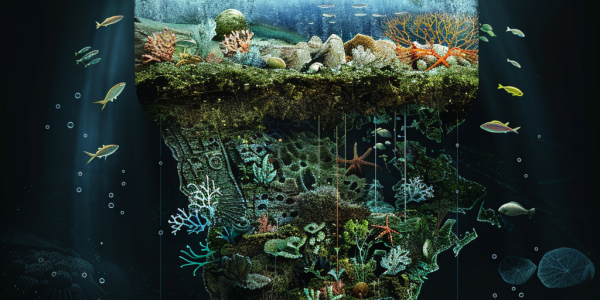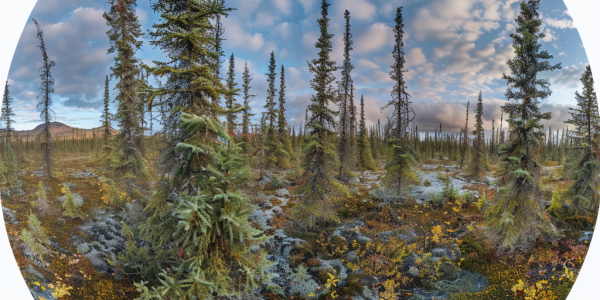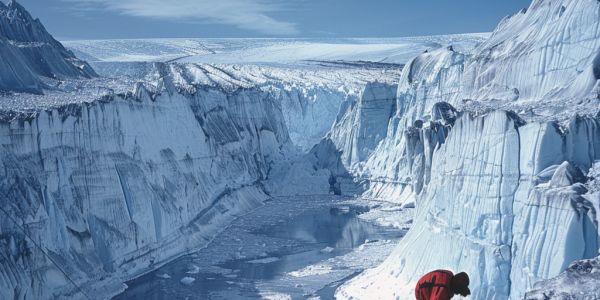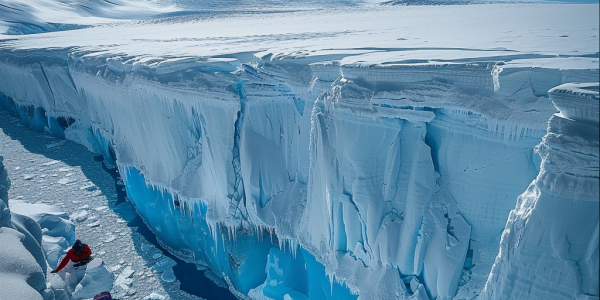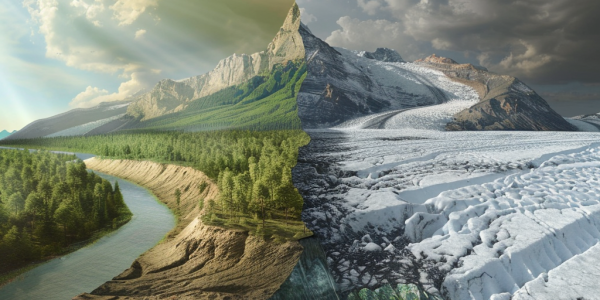Discovery of ‘Chonkus’ Bacterium Offers Hope in Climate Change Fight
The discovery of a new bacterium, UTEX 3222, known as ‘Chonkus,’ offers hope in the fight against climate change. Found in volcanic ocean vents, this cyanobacterium shows exceptional capabilities for carbon dioxide absorption, making it a promising candidate for carbon capture technologies. Research highlights Chonkus’s potential to significantly reduce atmospheric CO2 levels, paving the way for innovative solutions in environmental science.
New Study Reveals Deep Ocean’s Role in Earth’s Climate History
A groundbreaking study published in *Science* reveals new insights into the Earth’s climate history, focusing on the Mid-Pleistocene Transition and the complex role of the deep ocean in climate regulation. Led by researchers from WHOI and other institutions, the study utilizes 1.2 million years of climate records to uncover how ocean circulation impacts global climate and carbon storage, highlighting the deep ocean’s critical function in mitigating climate change.
Reevaluating Tree Planting as a Climate Solution in Northern Regions
In an era where online privacy is paramount, understanding cookie consent and data protection is crucial for users. This article explores the implications of accepting optional cookies and the potential risks associated with data transfer to third parties. Additionally, it discusses the effectiveness of tree planting as a climate change solution, particularly in northern high latitudes, where recent research suggests it may contribute to warming. A comprehensive approach to climate strategies is essential for sustainable solutions.
20-Year Study Reveals Complex Impact of Climate Change on Alaska’s Permafrost Forests
A groundbreaking 20-year study by Osaka Metropolitan University reveals how climate change impacts carbon dynamics in Alaska’s permafrost forests. The research, published in the Proceedings of the National Academy of Sciences, highlights a complex shift from CO₂ sinks to sources and back, emphasizing the adaptability of black spruce trees amid changing environmental conditions. This vital study aims to refine climate models and enhance our understanding of ecosystem responses to global warming.
Rainfall Enhances Ocean’s Carbon Absorption by Up to 7%
A groundbreaking study reveals that rainfall significantly enhances the ocean’s ability to absorb carbon dioxide (CO2) by 5% to 7%, equating to an additional 140–190 million metric tons annually. Led by oceanographer David Ho, this research emphasizes the critical role of precipitation in the ocean’s carbon sink capacity and calls for a reevaluation of climate models to include rainfall effects on CO2 absorption.
Oregon State University Study Explores Ancient Climate Through Ice Cores
Oregon State University professor Cristo Buizert is analyzing Greenland ice cores to uncover Earth’s climate history. This groundbreaking study focuses on Dansgaard-Oeschger events, revealing insights into abrupt climate changes that could inform future climate predictions. Understanding these historical shifts is crucial as the world faces ongoing climate change challenges.
New Research Reveals 31% Increase in Global Plant CO2 Uptake
Recent research published in Nature reveals that global plant carbon dioxide (CO2) uptake has increased by 31%, now estimated at 157 petagrams of carbon annually. This study highlights the critical role of terrestrial ecosystems in carbon sequestration and climate change mitigation, utilizing innovative tracking of carbonyl sulfide (OCS) to enhance understanding of photosynthesis. These findings could inform future climate models and policy decisions aimed at reducing greenhouse gas emissions.
Scientists Propose Diamond Dust as Unconventional Solution to Global Warming
Scientists at ETH Zurich propose an innovative geoengineering solution to combat global warming: injecting diamond dust into the atmosphere. This unconventional method could potentially lower global temperatures by 1.6°C, raising discussions on the feasibility and ethical implications of such a massive project. As climate change intensifies, the exploration of alternative aerosol particles like diamonds highlights the urgent need for effective climate solutions.
Expedition to Thwaites Glacier Highlights Climate Change Urgency
Scientists and writers embark on a groundbreaking expedition to Thwaites Glacier, known as the ‘Doomsday Glacier,’ to study its potential impact on global sea level rise. Elizabeth Rush documents this journey in her book, highlighting the intersection of climate change, personal narratives, and the urgent need for action. Discover how this critical research is shaping our understanding of environmental challenges and the future of our planet.
Stanford Research Reveals Puzzling Sediment Absence During Eocene-Oligocene Climate Transition
Recent research from Stanford University reveals surprising insights into the Eocene-Oligocene transition, a significant climate shift 34 million years ago that led to the formation of Antarctic ice sheets and global sea level decline. Despite expectations of extensive sediment deposition, researchers found little to no sediment at continental margins, challenging existing models of sediment dynamics. This study highlights the need for deeper understanding of Earth’s climatic history and its implications for current climate change.

